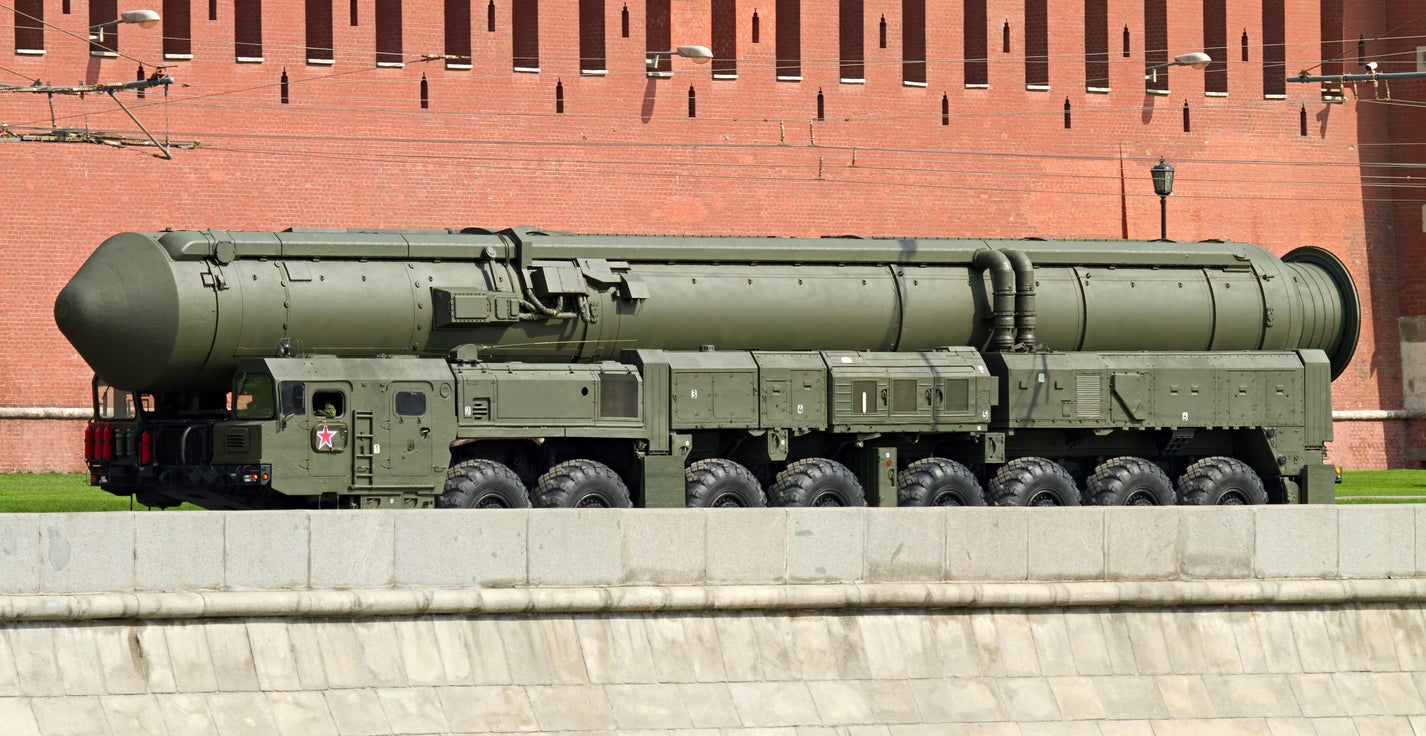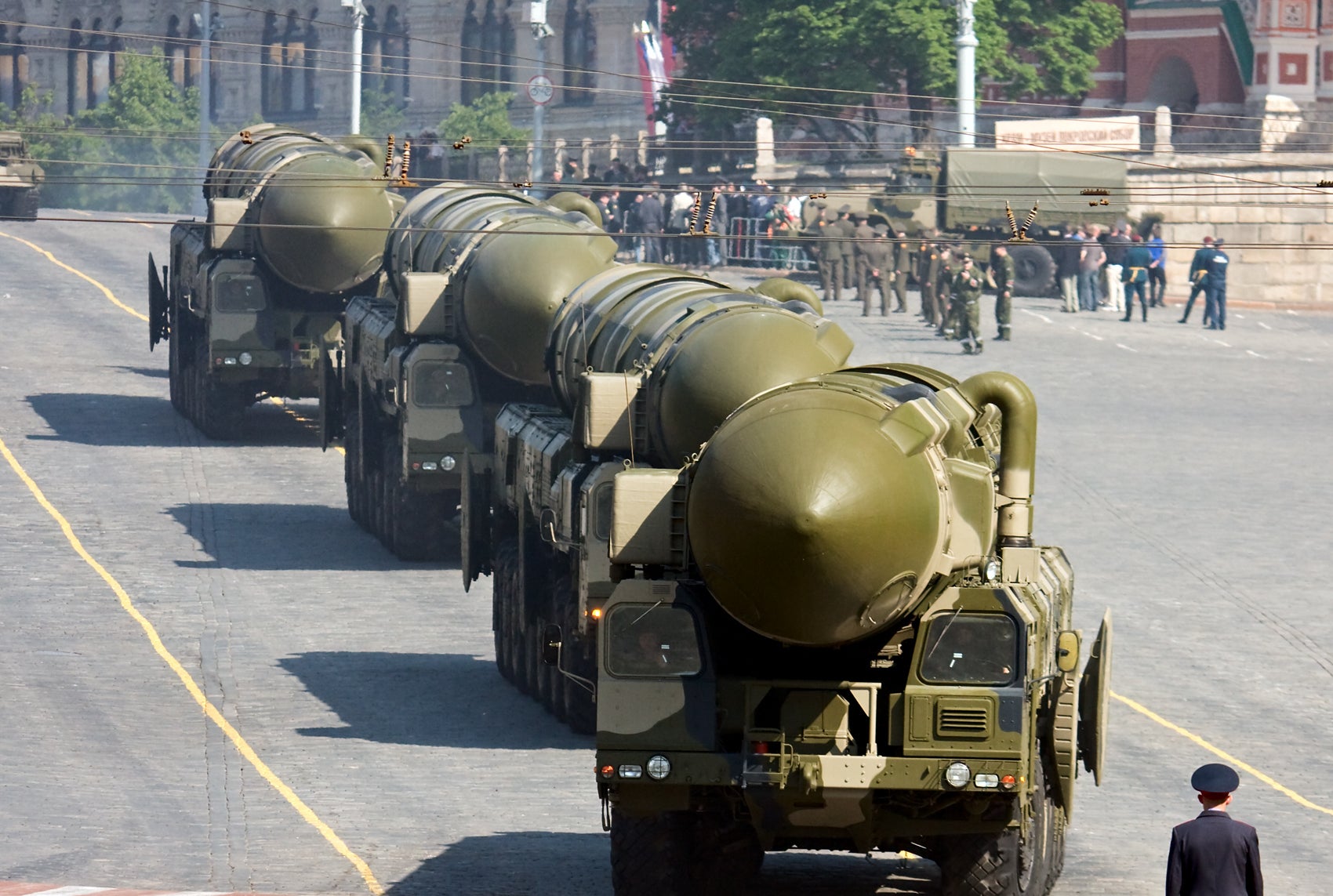How many nuclear weapons does Russia have as Putin renews threat
Western leaders condemn Russian president’s warning to use ‘all means’ to protect territorial gains in Ukraine
Your support helps us to tell the story
From reproductive rights to climate change to Big Tech, The Independent is on the ground when the story is developing. Whether it's investigating the financials of Elon Musk's pro-Trump PAC or producing our latest documentary, 'The A Word', which shines a light on the American women fighting for reproductive rights, we know how important it is to parse out the facts from the messaging.
At such a critical moment in US history, we need reporters on the ground. Your donation allows us to keep sending journalists to speak to both sides of the story.
The Independent is trusted by Americans across the entire political spectrum. And unlike many other quality news outlets, we choose not to lock Americans out of our reporting and analysis with paywalls. We believe quality journalism should be available to everyone, paid for by those who can afford it.
Your support makes all the difference.Vladimir Putin has issued a thinly-veiled nuclear threat to the West, saying he is ready to use "all means" at his disposal to protect Russia's territorial gains in Ukraine.
The Russian president insisted it was not a "bluff" as he ordered a partial mobilisation on Wednesday, calling up thousands of extra troops to fight in Ukraine as his forces continue to face major setbacks on the battlefield.
He claimed the West is engaging in "nuclear blackmail" and that Moscow had "lots of weapons to reply". Several western countries have been sending Ukraine money and weapons to support its war effort.
Some analysts say the threats should be interpreted as a warning to the West not to escalate their involvement in Ukraine rather than signalling any desire to actually use them.

World leaders including UK prime minister Liz Truss and US president Joe Biden criticised Mr Putin's comments as they reaffirmed their support for Kyiv at a meeting of the United Nations in New York.
It is not the first time Mr Putin has engaged in posturing on nuclear weapons. During the first weekend of the war in February, he placed the country’s strategic nuclear weapons forces on high alert. He issued another warning in March, responding to what he described as an “aggressive statement” by the Nato military alliance.
Experts say that any estimates about how many nuclear weapons a country holds are just that - estimates. But according to the Federation of American Scientists, Moscow has 5,977 nuclear warheads - devices that trigger a nuclear explosion.
This figure, however, includes about 1,500 that are retired and set to be dismantled, the FAS says.

Most of the remaining 4,500 or so are considered strategic nuclear weapons - ballistic missiles, or rockets, which can be targeted over long distances. These are the weapons usually associated with nuclear war.
In his televised address on Wednesday, Mr Putin said members of the military reserve, some 300,000 people, especially those with experience of active duty, would be called up to fight in Ukraine.
“We are talking about partial mobilisation, that is, only citizens who are currently in the reserve will be subject to conscription, and above all, those who served in the armed forces have a certain military speciality and relevant experience,” Mr Putin said.
His address alarmed many across the world and caused thousands of Russians to try and flee the country, with one-way flights out of Russia reportedly selling out.
It came a day after the Russia-controlled separatist regions in eastern and southern Ukraine announced plans to hold votes to become parts of the Russian Federation.
The referendums are expected to begin on Friday in Luhansk, Kherson and the Russia-controlled portions of the Zaporizhzhia and Donetsk regions.
On Thursday morning, former Russian president Dmitry Medvedev appeared to double down on Mr Putin's nuclear threat, saying weapons in Moscow's arsenal could be used to defend territories joined to Russia from Ukraine.
Mr Medvedev, who also serves as deputy chairman of Russia's Security Council, said that referendums planned by Russian-installed and separatist authorities in large swathes of Ukrainian territory will take place and added that "there is no going back".
"The Western establishment and all citizens of NATO countries in general need to understand that Russia has chosen its own path," he said.
Ukraine and Western leaders have described the referendums as shams and said the results of the votes would not be recognised.




Join our commenting forum
Join thought-provoking conversations, follow other Independent readers and see their replies
Comments